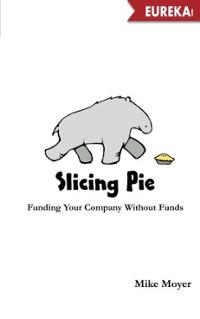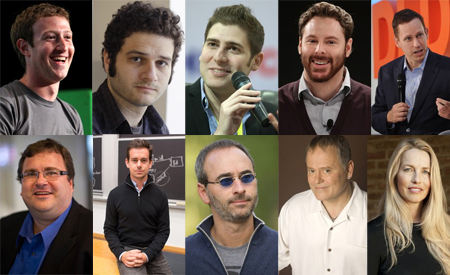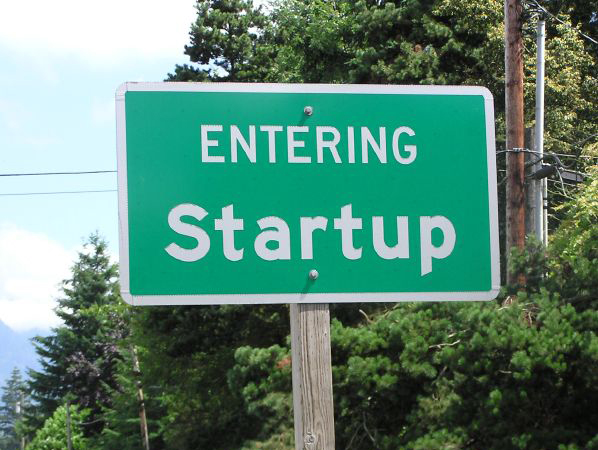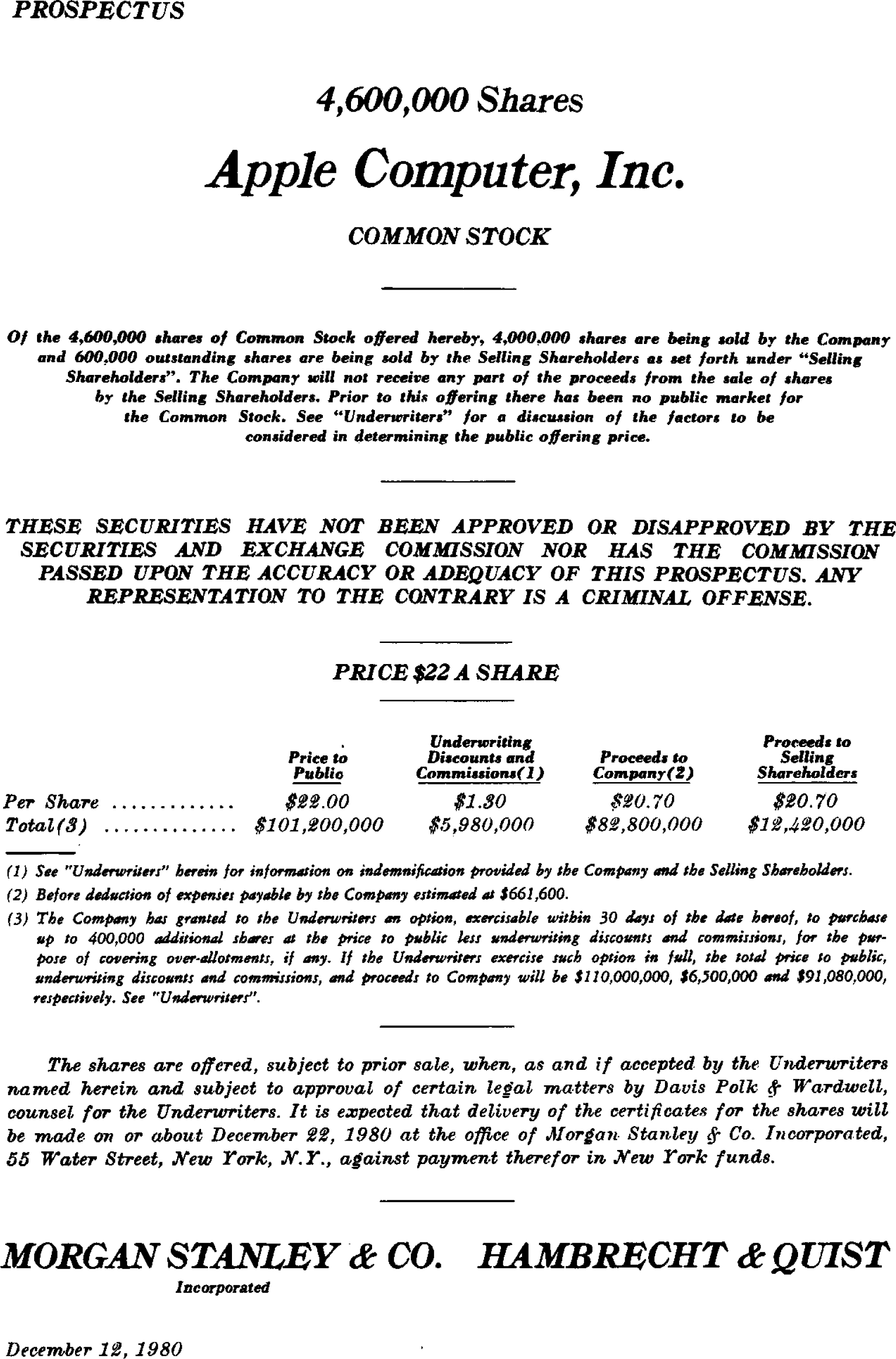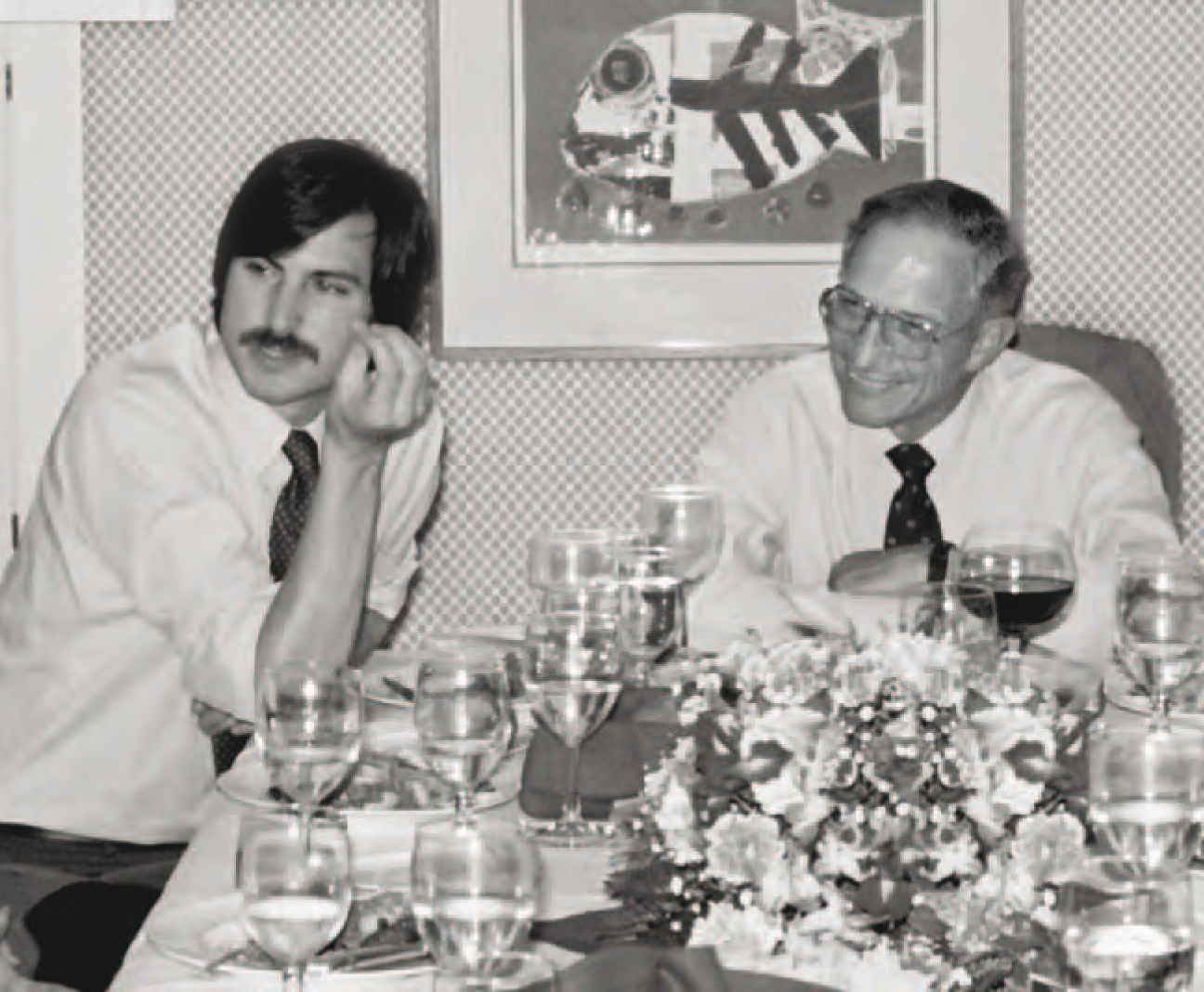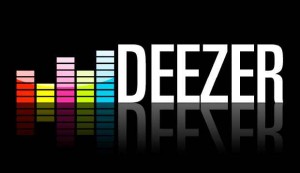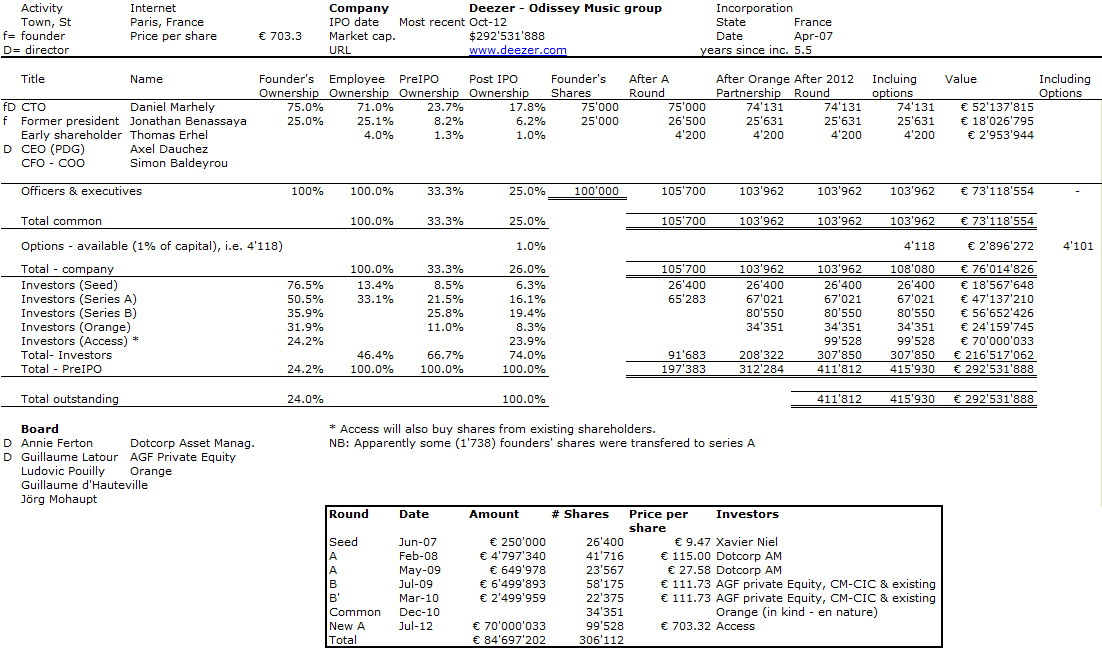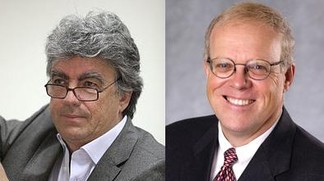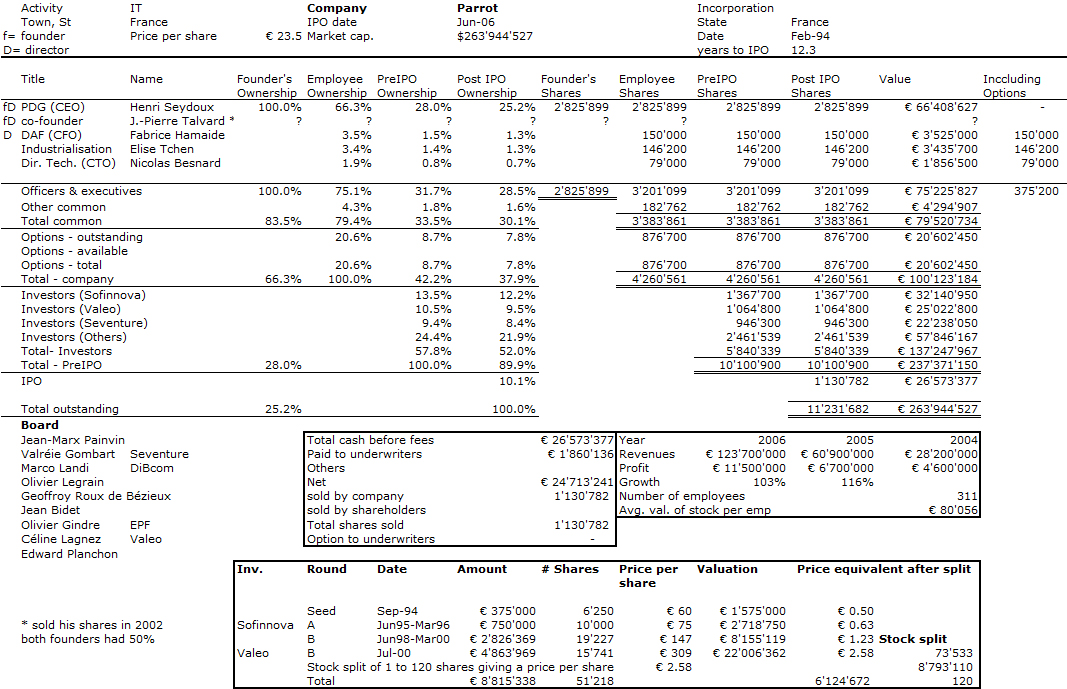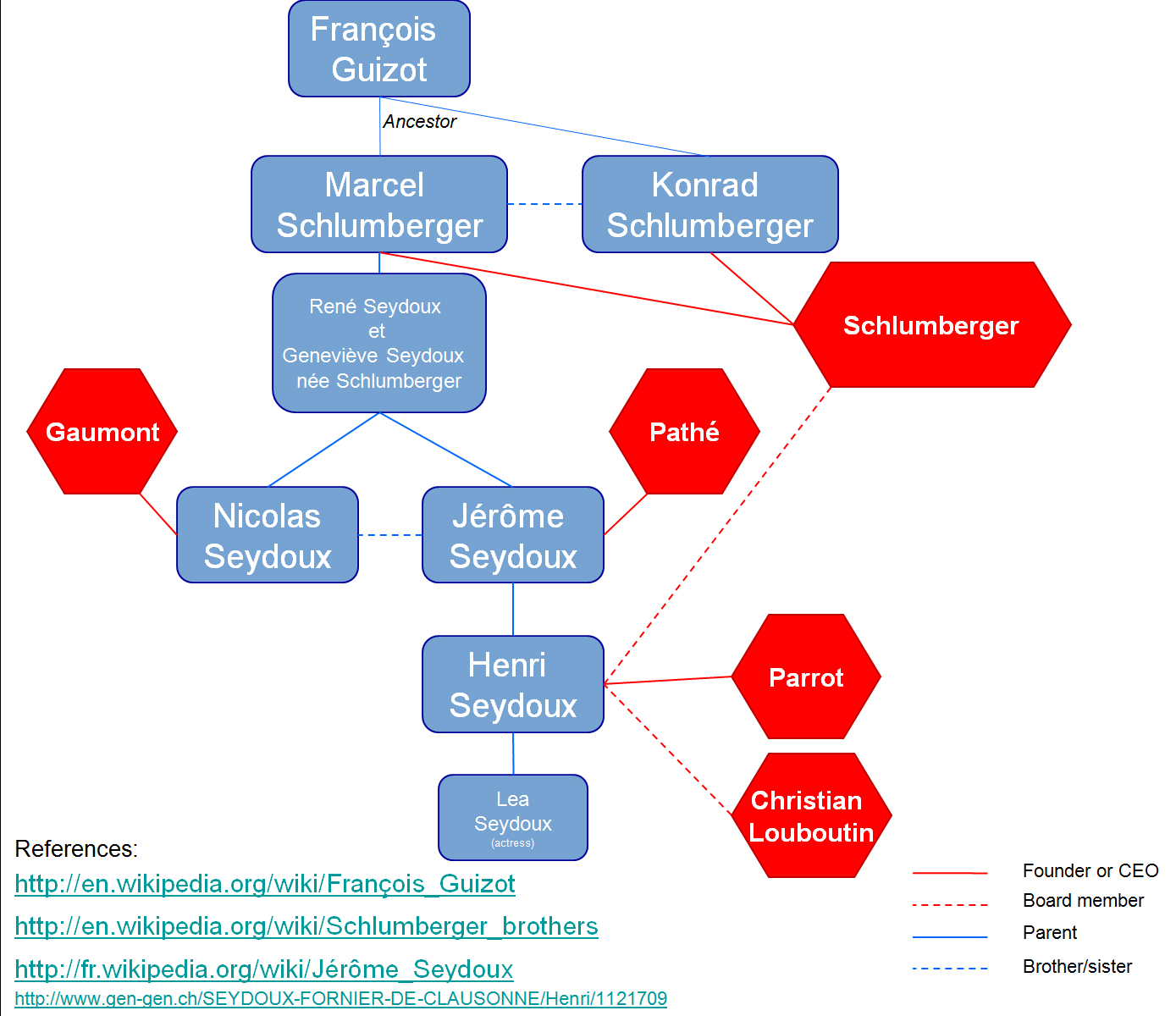Following my recent post (part 1), here is what I keep from the book without giving all details. Moyer probably needs to sell a few copies!
Moyer introduces the Grunt Fund as a mechanism to allocate equity between founders. He is using the classical metrics I have used in the past (again see Equity Splits in Start-ups) but he adds one interesting point: a dynamic allocation based on future contributions such as time and cash, weighted with your value (reputation, experience, etc). His process is simple:
– Appoint a Leader
– Assign a theoretical value to the ingredients provided by the various Grunts.
– Keep track of the contributions and calculate the possible equity whenever you need based on the relative contributions by each Grunt.
A Grunt Fund makes some people uneasy. They like to know what they’re getting into and they like the I’s dotted and the T’s crossed. That’s fine. If this is you, then don’t use a Grunt Fund – get a job instead. [Page 50] Then be careful about who and what you need. It’s up to you to decide what you need, but be fair!
Moyer mentions on the following page Noam Wasserman’s The Founder’s Dilemma (which I have not read) as a theoritical validation of his approach.
Without entering too much detail, Moyer gives value to time (2x what would a normal salary be) and cash (4x the actual amount). This is subjective. The critical element is that all Grunts agree with the rules. It can change from one company to the other… “Remember, you need to compensate them for not only the work they did, but also for the risk they take.” [Page 64]
When it comes to ideas or intellectual property, Moyer has principles I am quite close to: “Don’t get me wrong, ideas are critical to a business’ success. But turning the idea into a reality is where the value is built, not in coming up with the idea in the first place.” [Page 82]
Sometimes you will need to remove someone. There are 3 possibilities:
– he/she resigns without cause. You need to reduce his slice;
– you terminate him/her without cause. The slice should be kept;
– you terminate with cause. He/she may lose the slice.
[Chapter 5 + Pages 141-145]
The Grunt Fund is for the early days only. When do you stop using it? When you have a predictable business model, or when you have raised $1M. [Page 114]
As a conclusion (and Moyer mentions it many times), “a Grunt Fund is a moral contract, not a legal contract. It tells us how to treat each other fairly. […] A Grunt Fund is the foundation of a trusting relationship.” [Pages 121-122]

